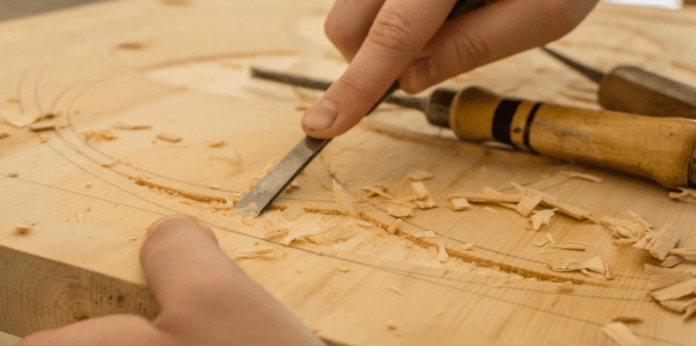You might not realize it now, but there are a surprising number of repairs and DIY projects that you can undertake yourself in order to both save money and get a lot more functionality out of your home. For example, if you have a bit of tech knowledge, then you could easily set up a smart home with features such as smart lights, motion-sensing cameras, and other new technology to help you create a safer and more responsive home.
However, many people shy away from trying projects like this even though they’re not exactly dangerous or time-consuming. This is mainly because people don’t enjoy stepping out of their comfort zone–and for good reason! People often underestimate just how much time it takes to get comfortable with a new task or skill, but it does require you to practice it and slowly get more accustomed to it.
But is there a way to speed this up? What if you’re just starting to get into home DIY, is there a way for you to break out of that comfort zone?
Look at what you’re comfortable doing now so you can establish a baseline
The majority of us have probably done some kind of DIY work at home. Maybe it’s something small like changing a lightbulb, or perhaps it’s a bit more involved such as building and installing a shelf. Whatever the case may be, there’s probably something that you’ve done at home which counts as DIY and is fairly involved.
Try and make a list of the DIY-related things you’ve done at home. This is a great way to establish a baseline so that you know how far you could step out of your comfort zone. Sure, there are plenty of home repair projects that you shouldn’t do yourself, but nothing is impossible as long as you’re equipped for the job and are willing to go the extra mile to learn something new.
Once you’ve established some kind of baseline, you can start thinking about how you want to tackle new DIY projects. You’ll want to set aside some time in the week to learn about new projects and also see what’s involved. For example, if you’ve done some light DIY work on things such as kitchen faucets, then you might want to go a little further and try replacing some plumbing pipes or doing another set of faucets in the bathroom.
You have to learn through experiencing something yourself
Don’t be afraid to fail or mess things up now and again. As long as you’re not causing additional damage to your home or wasting a lot of money on materials and tools, it’s fine to make mistakes now and then because it’s a part of the learning process.
Making a mistake is expected if you’re relatively new to home DIY, so don’t dwell too much on failures and try to learn from them. Re-read any guides to see where you went wrong, or consider watching a video tutorial to see if there was anything you could have improved.
Research is important because it helps you feel more comfortable
A great way to learn new things is to simply research them. For example, if you’re interested in clearing clogged drains in your home but don’t have a point of reference, then watching videos and reading guides can be a great way to visually see how something is done before you give it a try yourself. This can help you get accustomed to the idea of doing your own DIY projects and it’s a fantastic educational tool that will help you prepare for different kinds of situations.
Most videos and guides will also warn you of the potential dangers or issues that you might run into. By understanding these pitfalls early on, you’ll have a much stronger sense of safety since you know what to expect, and you’ll have an idea of what to look out for and avoid. This gives you a lot more peace of mind too and can help instill confidence in your abilities.
Getting out of your comfort zone can be daunting. However, once you get accustomed to doing things outside what you might consider normal, you’ll start to feel a bit braver and understanding of new concepts. You’ll learn things faster and you’ll be hungry to challenge new things. Of course, you don’t need to step too far out of your comfort zone, but occasionally dipping your toes into unknown waters can be great for your personal development. It’ll also teach you new skills and expose you to new experiences that can be great learning opportunities.


